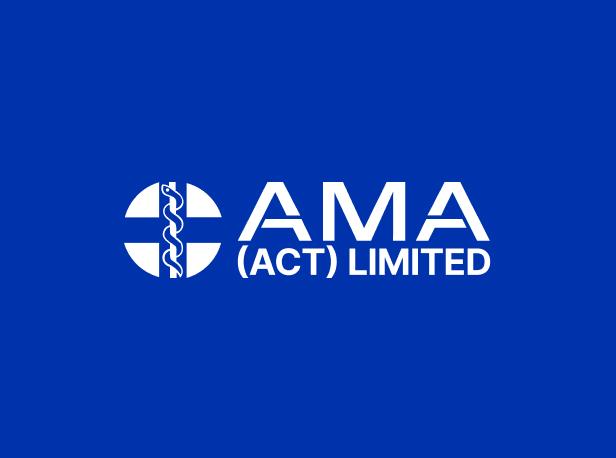Q&A with Dr Rashmi Sharma OAM - (Canberra Doctor - Family Doctor Week 2017)
For the second in our series of quick Q&As with doctors in the Canberra region we’ve asked Dr Rashmi Sharma OAM, leading local GP, Clinical Associate Professor at ANU Medical School, principal, along with her sister, of the Isabella Plains Medical Centre and AMA (ACT) Board Member, a few searching – and not-so-searching – questions.

Q: Why did you pursue a career in medicine and why did you choose general practice?
I was the youngest of three girls and my parents had migrated to the UK in the 60’s from India. My parents encouraged me to pursue a career that would be interesting, prestigious and, most importantly, enable me to be financially independent. I nearly actually chose law as a career (my father was an academic lawyer) but somehow, when I was 16 science subjects were chosen and so the story ends.
In terms of General Practice, well, I clearly remember sitting on the banks of the Brisbane River and tossing up between O&G and general practice. In the end though, my perceptions of O&G - endless night shifts, bullying and, ahem, “brown nosing“ - set against training flexibility in terms of location and type of practice as well as the challenge of never knowing what you would be treating next – general practice won with ease.
Q: If you weren’t a Doctor, what would you be?
Probably a lawyer. My father’s background and with one of my two sisters a lawyer, I think that’s the most likely alternative. Although I am sure I would have dabbled in a lot of things - like I do now! There is a side of me that likes gardening, collecting recipes that I never use (I have to put that in as my sister will be reading this), travelling , looking after animals , helping the needy and so who knows – I could have ended up as some sort of hybrid environmentalist or with MSF or Amnesty International.
Q: In your opinion, what are the most pressing issues facing the medical profession? And for your speciality?
I think there are many pressing issues for the medical profession – the limited health budget and using it wisely, the apathy and disunity amongst that policy makers exploit, the expectations of consumers, the perception that we are replaceable by other health professionals using flow charts and protocols and the oversupply in certain areas affecting training and also career satisfaction.
In terms of General Practice, I think we need to overcome the perception of being “second best” – sometimes expressed by our medical colleagues - and that all we see are URTIs and minor ailments. This perception then flows on to rebates that are embarrassing for the work we do. Until General Practice is appreciated by the profession and policy makers as a necessary part of health care and until we unite as GPs to present ourselves to policy makers, I have grave fears that there will be further erosion and fragmentation of primary health care with General Practice losing its pivotal and central role.
Q: Name an experience, event or person that has had a lasting influence on your medical career.
Oh there have been so many – where to start? From a patient point of view I have been privileged to observe the heroism of a family who lost their young daughter, offer solace to a father who’s son was missing – later to be found drowned - and to share the joy of a young woman who fought off a sarcoma and went on to graduate as a lawyer and start a family. The journey we follow with our patients is the joy of General Practice.
From the academic point of view it is getting the emails out of the blue from a grateful ex-medical student saying they have completed their specialist training and thanks for the teaching.
From the policy point of view I think the 3 Chairs of the PBAC I have worked with – Lloyd Samson, Sue Hill and Andrew Wilson - have taught me how to balance evidence-based health policy decisions involving billions of dollars but still be compassionate to patients suffering from terrible illnesses.
As a patient undergoing treatment for my second cancer, I was fortunate to be treated by the late Chris O’Brien, the kindest doctor I have ever seen (and I’ve seen very many). He told me on day two post-surgery how great I looked – which was definitely not the case - but it made me realise that a simple few words could make me feel so much better and optimistic. Now I make a point of complimenting and encouraging those who come to see me realising just how comforting a few simple words can be when you’re feeling low.
Q: You completed your medical degree in London – is there anything in particular you miss about living and studying there?
Oh yes - Marks and Spencers Food Hall! And just the buzz of growing up and being educated in London. The culture, and acceptance of being different – I am still dismayed by the racism and ignorant comments I sometimes experience in Australia, the frequency of which waxes and wanes with the political climate.
Q: What would you say is the most embarrassing moment of your professional career?
Mmmm there have been a few – falling off my chair mid-consult as I wheeled across my room was met by my patient roaring with laughter and leaving me there to help myself up.
Another time, telling a patient to say “ahhh” while doing a pap as I had seen a lot of tonsillitis that day and was on a bit of an autopilot. While she kindly obliged, I hurriedly advised it was a good way to relax the pelvic muscles and then had to confess!